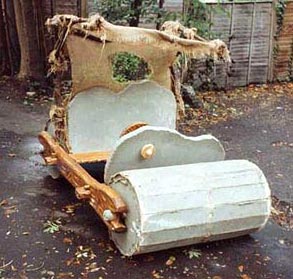One of the biggest concerns for a buyer is how the business will continue to function without you running it. Will it continue as it always has, or will all hell break loose and everything go wrong the second you’re out the door? These things REALLY matter to buyers and whatever you can do to alleviate this concern will absolutely work in your favour when you come to sell. You must become a master of risk management. What follows are five ‘quick’ tips that you can use to boost the value and saleability of your business.
(Ahem. ‘quick’ means quick to read, not necessarily quick to implement. Some of these require some work, but will be worth it to you in the long run)
1. Make yourself un-necessary.
(to attract WAY more buyers and charge more too)
If you left your business tomorrow, how long would it take for it to fall to the ground in a dramatic fiery heap? Trust me, that’s something that buyers have a massive concern about. If the success of the business is wholly tied to you being there, then when you’re not, it’s a perfectly reasonable concern to them that things may go wrong. Imagine you’re Fred Flintstone trying to sell his foot powered car.
The buyers would be worrying that the car might be too heavy to run, or impossible to break in or that turning will be a problem. This is because the car doesn’t run itself- Fred Flintstone runs the car (literally in this case). Without Fred behind the wheel, will the car run at all? This is what buyers are worried about. They’re quite happy to drive the car, but they want to know that the car will work without you. So when it comes to your business, that means implementing systems, training your existing staff to manager positions and if you need to, even hiring new staff. Build your business so that you don’t need to be there for every single day. Change your business…
| …from this… | …to this… |
 |
 |
The downside to this is that it’s takes a lot of time and energy to turn your business into a Lamborghini (figuratively speaking). But if you can get your business to the point where you can say ‘Under Management’ in your advertisement, the number of prospective buyers will soar (and you can also charge a lot more too).
… Plus, maybe a Lamborghini is a little too lofty for most businesses. The majority of buyers will be truly happy with a car that’s reliable and that does the job.
2. Prepare your financial documents (and be prepared to show them)
(Absolutely MUST have)
Let’s continue with the the car analogy for a little while longer. When buying a business, there is no trusted ‘mechanic’ that a buyer can take a business to who can tell them if it’s a good business or not. They have to establish that for themselves. So, they conduct ‘due diligence’; they spend their own time and money on investigating the business in order to make a decision about whether to purchase it or not. It is the most important part of their decision making process and it can’t done without seeing your financial documents such as tax returns, profit and loss statements, balance sheet, bookings, forward orders, quotes etc. Here’s why:
Imagine you’re buying the Kingswood Ute in the picture above. You love how it looks, you love how it drives- but then you ask the owner to pop the bonnet so you can look under the hood. The owner says ‘no’ and starts making excuses about why you can’t. Stuff like:
- I don’t want to let you look under the hood until you pay a deposit
- The car doesn’t have anything under the hood
- Oh, sorry, the bonnet doesn’t open
- You don’t need to look under the bonnet, you can see how well it drives
- Tell you what, how about I just show you these engine mounts. That should do right?
- Um, look the engine isn’t ready yet, how about I send it off to my mechanic and I’ll get it to you in a few weeks…
Would YOU trust the owner if they said those things?
For businesses, providing financial documentation (such as tax returns, profit and loss statements, etc) is the equivalent of popping the hood in the above example. If you are unable provide financial books and records, chances are you’ve got a very legitimate reason- but to a buyer, any excuse you give runs the risk of sounding as untrustworthy as any of the reasons above.
So what does that mean for you? Make sure that when you put your business on the market your financial documents are ready. You’re going to want at least one year of well-recorded financials (but in reality most people expect three), they need to be presentable and easy to understand, and above all else, you have to be willing to share them with buyers who have signed a confidentiality agreement.
One more quick tip: don’t stop keeping good records when you go on the market. Keep your financial documentation up to date! If you’re on the market for six months, and you haven’t been keeping up to date over that period, then you’re going to find yourself in a position where you’re missing your most important information.
… Ok, I know the heading said that there were five tips, but we’re already up to about 900 words which is far too long for a blog. SO, make sure to watch this space for Part Two. If you aren’t receiving email updates for these blogs, click here to sign up to our mailing list and we’ll email you when Part 2 comes out.
By Zoran Sarabaca
Principal of Xcllusive Business Sales
Sell your business with Certainty
Would you like to talk to someone about how to sell YOUR business? Our team are happy to talk to you about your personal circumstances so if you’d like to know a bit more about selling your business call us on (02) 9817 3331, or fill in an enquiry by clicking here. We look forward to talking to you.
DISCLAIMER: The information contained in this blog is for information purposes only. It is not meant to be considered as business advice. The points of view expressed represent reactions to the current business market and it should be noted that the market may be subject to change in the future. Reader’s specific circumstances may be different and have not been taken into consideration. Always consult with your professional advisors for any business advice.




